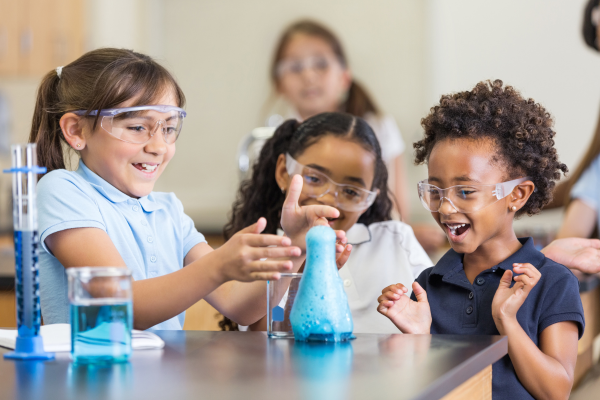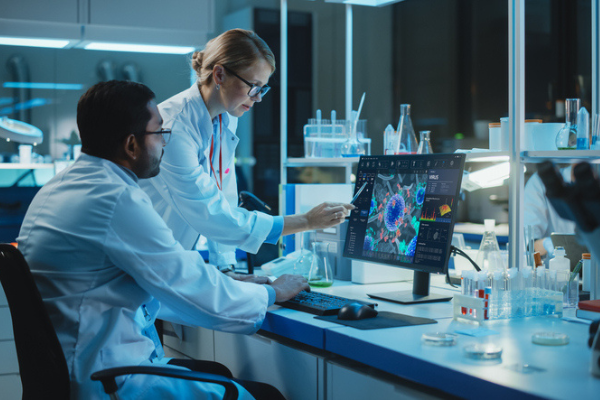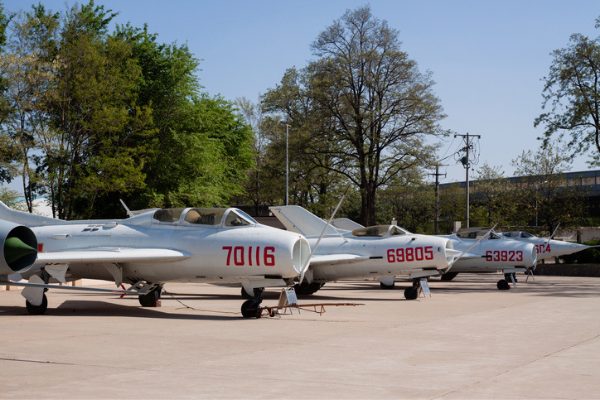
What led you to pursue a career in chemistry?
I was always curious and interested in chemistry in high school. I specifically enjoyed lab experiments and I was able to grasp many of the topics in chemistry easily. Chemistry stood out to me and was especially enjoyable, so I decided to pursue it in college. I investigated how many chemistry career opportunities there are and noticed that there is a place for chemists in everything from food to pharmaceuticals to visual arts.
I also have several family members whom I look up to who were or are chemists and their stories and lives also influenced me to follow in their footsteps. I had excellent tutors and teachers in math and sciences through middle school and high school to whom I am grateful for developing my skills and talents. They also encouraged me to pursue chemistry and gave me the confidence that it would be the right career choice for me.
Tell us about your current role with ExxonMobil. What do you like best?
I came to ExxonMobil right after college as a contractor laboratory technician. At the time I was looking for jobs and did not know exactly in which chemistry area I would have liked to work. I tried applying for roles through various job sites, and one day I got a call from a recruiter that was looking for laboratory technicians at ExxonMobil Research and Engineering, now ExxonMobil Technology and Engineering Company (EMTEC). I went on an interview in 2015 and have been at the company ever since, working in various positions.
Currently, I am a researcher working on scale-up of active materials, focused on determining critical synthesis parameters and engineering practical pathways for materials scale up and commercialization. My job involves designing lab experiments, analyzing data, and leading a team to digitize materials data space. I particularly enjoy that I can use my creativity in material synthesis and scale-up, as well as digital tools to accelerate progress and improve efficiency.
One aspect that I immediately noticed (even during the initial interview) was the people working at ExxonMobil. My interviewers not only seemed like hard working and driven individuals but were also personable and considerate. My initial impression was correct, and I am proud to work alongside so many talented and wonderful individuals, many of whom have become good friends over the past few years. I am incredibly grateful and fortunate to be surrounded by supportive and encouraging co-workers. I have learned a great deal from my colleagues, and they have positively influenced me to keep developing in my personal and work life.
How has your involvement with ACS helped you in your career?
I have met many talented chemists from other areas of chemistry with different experiences and expertise. It is always a pleasure to interact with other scientists and hear their perspectives. I’ve met people through ACS who have pushed me outside of my comfort zone and it positively impacted areas of my life.
What I didn’t expect earlier in my career was the role that ACS would play on developing my skills such as leadership and decision-making. I was Programming Chair for the Industrial and Engineering Chemistry Division in ACS in 2020 and 2021 when there was a strong shift to virtual and hybrid meetings. In general, there was a lot of confusion and uncertainty about how meetings would proceed. Additionally, there were a lot of questions from both speakers and symposia organizers about the details that were often not available until the last minute.
Often, as a Programming Chair, I had to make decisions for the division’s programming and commit to it to attempt to have continuity as much as possible. Although it was often challenging, it taught me to make the best decision I can with the information available to me at a given time. This skill translated into my work life and taught me to be more decisive about my day-to-day experiments and work.
What advice would you share with other early career scientists?
I think it’s important to exercise scientific intuition and creativity - many “Friday afternoon experiments” lead to great discoveries. I think it’s crucial not be afraid to try new experiments or new methods and to learn by stepping outside of your comfort zone. Many of us early career scientists have an incredible advantage of working with many talented mid and late career scientists. I think it’s important to learn from them as much as possible and it is a great opportunity and privilege to work alongside them.
What do you like to do outside of work?
Outside of work, I particularly enjoy traveling, skiing, hiking, visiting museums and historical places, as well as baking. Most importantly, I enjoy spending time with family and friends.

Anna started working with ExxonMobil Research and Engineering Catalyst Technology Division in 2015 as a contractor, where she worked primarily on catalyst formulation efforts. She later joined ExxonMobil as an employee working in Corporate Strategic Research where she focused on porous materials synthesis. Subsequently, Anna became a Catalyst Scale-Up Technologist and then a Researcher mainly focusing on the catalyst and active material synthesis and scale-up. Anna holds a Bachelor of Science in Chemistry from Seton Hall University and a Master of Professional Studies in Data Analytics from Pennsylvania State University.
This article has been edited for length and clarity. The opinions expressed in this article are the author's own and do not necessarily reflect the view of their employer or the American Chemical Society.














